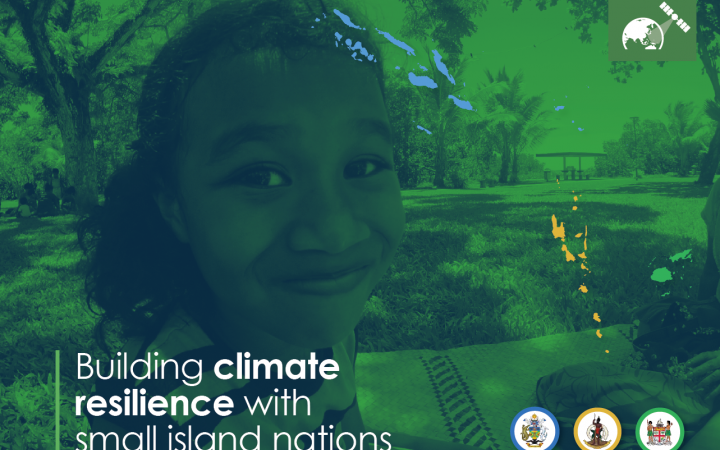Geneva, Switzerland – In the vast Pacific Ocean, where blue waters meet lush islands, the threat of climate change is not a distant but a reality deeply rooted in the present. Rising sea levels, frequent flooding and coastal erosion pose an unrelenting threat to rich ecosystems and communities. Despite contributing very little to global carbon emissions, these island nations face enormous costs to fortify their infrastructure against climate-induced hazards. Estimates suggest that Pacific island countries will need to invest between 6% and 9% of their annual GDP to strengthen their defences against climate change, or around $1 billion per year across the region. To address these urgent needs, UNOSAT is stepping up efforts to build resilience and protect livelihoods, leveraging its technical capabilities and capacity-building initiatives.
Harnessing technology to increase agricultural resilience in Fiji
Known for its vibrant culture and beautiful landscapes, Fiji is grappling with severe climate challenges. Rising sea levels, saltwater intrusion and coastal erosion are threatening the country's agricultural infrastructure. To address these issues, UNOSAT developed the iTei Qele app, an innovative tool that can provide critical information to farmers and agricultural stakeholders. Accessible through UNOSAT's platform, the application displays crop suitability data for mainland Fiji, Viti Levu and Vanua Levu.
Through the iTei Qele app, farmers can visualize the best locations for specific crops, allowing them to make informed decisions that increase productivity and community resilience. This initiative creates mutual benefits across the Fiji economy and strengthens food security – proof that innovative technology can address pressing climate challenges and improve livelihoods.
Strengthening Disaster Risk Reduction Capacity in Vanuatu
Vanuatu, another jewel of the Pacific, faces multi-polar natural hazards such as cyclones and floods. In a region where disasters can strike with little notice, preparedness is paramount. UNOSAT's training program has helped equip Vanuatu's Ministry of Climate Change (MoCC) with essential GIS skills. These skills have transformed the operational capacity of all the above mentioned actors, enabling them to produce detailed risk maps.
These risk maps are crucial during cyclone threats, guiding the National Emergency Operations Centre (NEOC) to launch a timely and effective response. By mapping the cyclone's path and potential impact areas, GIS experts facilitate rapid assessments and targeted interventions to protect vulnerable areas and minimise damage. Mickey Wellin's story, highlighted by UNITAR, highlights the transformative impact of UNOSAT's capacity-building efforts in climate risk reduction.
Securing climate financing for future projects
Securing funding for climate finance projects is a daunting task for Pacific leaders, often hampered by limited resources and complex application processes. Recognizing this challenge, UNOSAT partnered with the Commonwealth Secretariat's Climate Finance Access Hub (CCFAH) and the Pacific Community (SPC) to host a regional climate finance workshop in Suva, Fiji. The workshop, like other Writeshop trainings, equipped leaders with the skills needed to navigate funding agencies and develop compelling project proposals.
The success of this effort is evidenced by the Government of Fiji's recent securing of a $5.7 million project from the Adaptation Fund. The funding will be used to build 14 nature-based breakwaters that will protect more than 2,400 people living in 14 villages. Projects such as this are critical to mitigating the effects of climate change and building resilient communities. UNOSAT will host a webinar on 5 June at 9 am (Geneva time) to learn more about climate finance and its many benefits.
Working together towards a resilient future
UNOSAT's multifaceted approach – encompassing technology, capacity-building programmes and funding – demonstrates the power of collaboration in addressing the complex challenges posed by climate change. From empowering farmers in Fiji to strengthening disaster risk reduction in Vanuatu, UNOSAT's work highlights the critical role of innovative solutions and capacity development.
/Public Release. This material from the originating organization/author may be out of date and has been edited for clarity, style and length. Mirage.News does not take any organizational stance or position and all views, positions and conclusions expressed here are solely those of the authors. Read the full article here.
Source link



